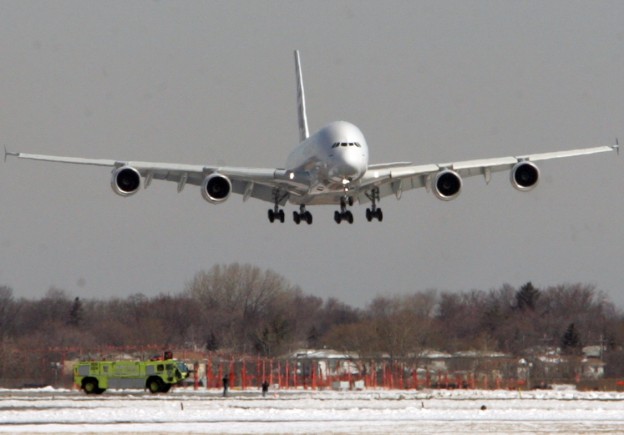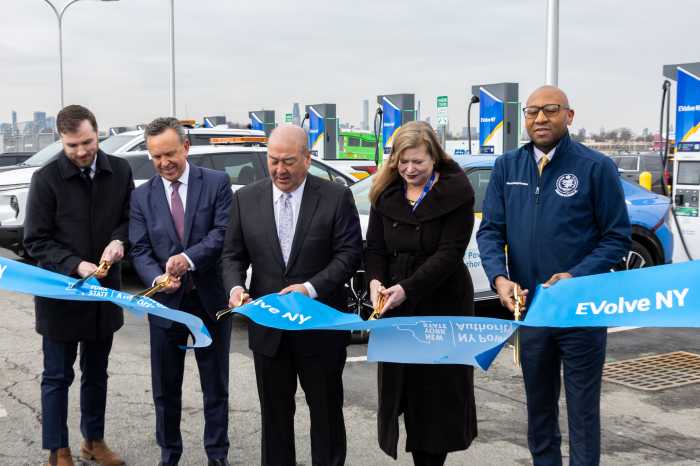Several local Congress members are continuing their fight to keep the skies over Queens — and communities across the country — quiet.
The Quiet Skies Caucus, whose membership includes Congresswoman Grace Meng and Congressman Joseph Crowley, as well as representatives from several different states, sent a letter to Bill Shuster, House Transportation and Infrastructure Committee (HTIC) chairman, and Peter DeFazio, HTIC ranking member, with a list of recommendations they would like to see added to the 2015 Federal Aviation Administration Reauthorization Act.
This act would help address the harmful impacts of aircraft noise over Queens, Long Island and many other communities across the country.
The first recommendation is to mandate a robust community engagement process, including pre-decisional public hearings, for new flight paths or procedures or changes to existing flight paths and procedures.
“Meaningful, two-way communication with our communities is vital to ensuring that the concerns of residents are heard and incorporated into the final design of new airspace,” the letter stated.
The Quiet Skies Caucus hopes to require the FAA to use supplemental noise metrics when considering the impact of aviation noise on affected communities and lower the acceptable noise threshold for affected homes and businesses.
“[The] FAA should lower the current threshold from 65 to 55 DNL [Day-Night Average Sound Level] to reflect the fact that this standard, first established in the 1970s, is arbitrary and does not align with current health research and the lived experience of families in our congressional districts,” the caucus wrote.
“My district in Queens — and many other communities across the country — continue to suffer from the blistering sounds of airplanes, and that excessive noise is negatively impacting the quality of life in the neighborhoods we represent,” Meng said. “Many of the recommendations we outline in our request are measures that I‘ve pushed for since I was elected to Congress, and incorporating our suggestions into this broad FAA bill would be the most effective legislative vehicle to address the problem of aircraft noise. Relief can’t come soon enough for those affected by the barrage of airplanes. I respectfully ask the committee to include our recommendations in the bill.”
A third recommendation made is to clarify that airport operators are legally allowed to implement — and should strongly consider — noise mitigation options in communities experiencing aircraft noise levels below the current noise threshold.
They also hope to reform Section 213(c)(2) of the FAA Modernization and Reform Act of 2012, which allows FAA to short-circuit the environmental review process when implementing new flight paths and to mandate independent research on the health impacts of aviation noise.
“For too long, the deafening roar of aircraft noise has burdened the communities that surround our airports — posing health risks, disrupting student learning and deteriorating their quality of life,” said Crowley. “Our airports can never be perfect neighbors, but we can take steps to make them better ones. Engaging our community, adequately studying the impact of aircraft noise, and implementing mitigation measures for affected residents are key steps in this process, and I’m proud to join my fellow caucus members in calling for these recommendations as part of the FAA Reauthorization Act.”
RECOMMENDED STORIES


































